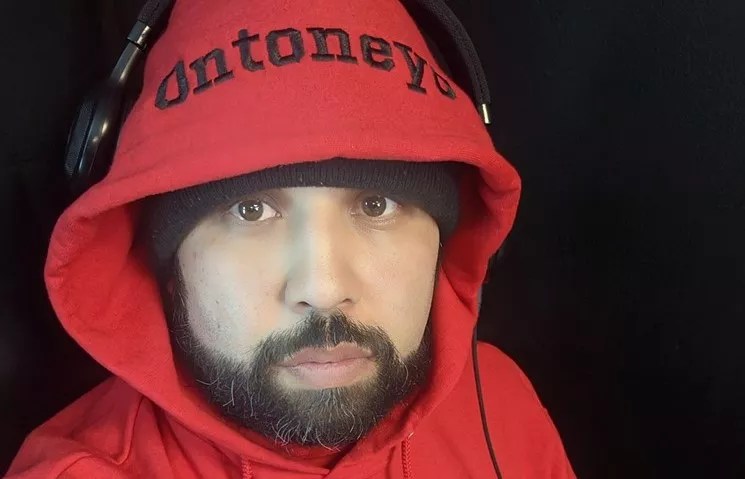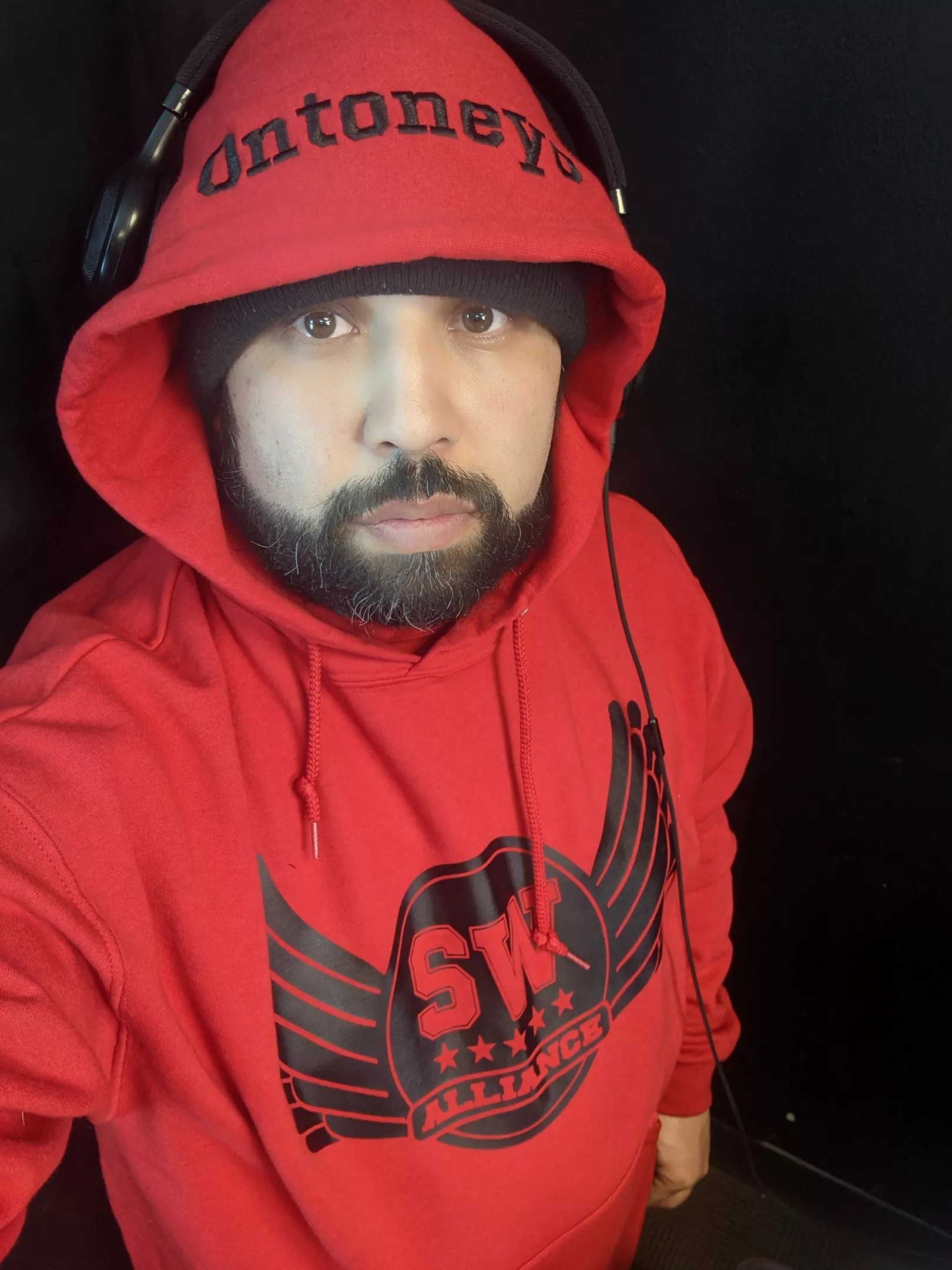

Audio By Carbonatix

DJ
DJ
For years, DJ Antonio “Ontoneyo” Valenzuela had watched Colorado rappers and DJs get short shrift from the music industry. Dismayed, he saw artists failing to promote their new tracks and build a real fan base, local radio stations and promoters ignoring local artists, and DJs rarely getting respect from labels.
The problem wasn’t just in Denver. While Houston, Atlanta, New York, Chicago and L.A. all had thriving scenes, other Southwestern cities were struggling to elevate their homegrown hip-hop artists.
“Our markets’ depth was specifically the greater box: Colorado, New Mexico, Utah and Arizona,” Valenzuela says. “They’re underserved, underdeveloped markets in terms of hip-hop. And we know that. As a consumer, as an artist, as a manager — in every aspect.”
“You’re talking about a region that always gets left out when it comes to national industry stuff,” adds DJ John Figueroa, aka John Blaze, the Phoenix-based founder of Respect the Underground and owner of Ikon Radio. “It’s always either L.A., Texas, Atlanta, New York, Miami, whatever it is. But they forget about Phoenix. They forget about Denver. They’ll come to our city and get money for the shows, but they don’t ever really settle in and really try to figure out what’s going on.”
Artists in these Southwestern cities complain that while they’re as good as talents across the country, they can’t get on the map; regional DJs gripe that major labels haven’t been pushing their new releases to the DJs spinning at local clubs and independent radio stations.
“We don’t get the records,” Valenzuela says. “Like, if you’re a DJ in New York, Def Jam sends you a pack. You know — you’re on the radar. You get it every week. You get it on time. Here in Denver, we might not hear it.”
During the pandemic, with the live scene shut down, he set out to change that — starting with the labels.
“My goal was really to use our numbers to get them to talk to us, to deal with us like the radio stations,” he explains. “There are 150 DJs in Denver that spin hip-hop. So why aren’t we getting the records?”
But it wasn’t just the DJs who needed help.
“The other thing was, our artists, they don’t get out of town enough,” Valenzuela notes. “They don’t network with other DJs. People don’t hear them. So we said, ‘Hey, look, we have an opportunity to make it a revolving door. We can show our artists to other DJs, to the world and labels. And we can help labels know how to get to the influential DJs in our region for saturation without just hitting the radio.’”
To do that, he recruited a small crew of influential DJs to help organize the larger hip-hop community across the Southwest. In Denver, he teamed up with trendsetter Kamau Chiku-Martinez, aka DJ Ktone. In Phoenix, he brought on Figueroa. And to ensure that there was representation from the broader music industry, they recruited Roland “Digital Dope” Williams out of Atlanta. Together, the four founded the Southwest Alliance.
The past year proved an opportune time for the founders to build their network.
“This kind of birthed during COVID,” says Chiku-Martinez. In pre-pandemic times, “all of us DJs are moving all the time, and you know, we might run into each other here and there. But because of COVID, we were locked down. So it gave us an opportunity to focus on ‘Okay, this is what we need to do. And because everybody’s at home, especially DJs, let’s come together and really organize something real.’ And it took off. I don’t know if you could have done that and done this much if it wasn’t for COVID.”
“To be honest, before I knew Ontoneyo, I had no idea that Colorado and Denver had a hip-hop scene, much less, you know, the type of talent that’s there,” admits Figueroa. “It wasn’t until Southwest Alliance and Ontoneyo that I really started tapping in with the artists and the consistency and the quality of music. And likewise for Phoenix. So I started playing Denver stuff, and Ktone and Ontoneyo started playing Phoenix records.”
Now, every Tuesday, the Southwest Alliance hosts Meet the DJs, an online networking call. Starting at 6 p.m., regional artists’ singles are played, and DJs give the musicians feedback. At 7 p.m, the DJs get face time with big-label artists like Juicy J, BeatKing and others.
Most of the rappers each pay $200 to have their work played on the call, though occasionally the DJs handpick tracks to play. But Figueroa says the investment is definitely worthwhile: “You could be an artist, and you could get instant feedback, real-time, from thirty or forty DJs at one time, you know what I mean? That’s kind of hard for any independent artist to be in front of that many professional working DJs. The opportunity that creates is bar none to me.”
Adds Valenzuela: “So when the call is over, what we do is we send all the artists drop scripts, and all the music goes into a catalogue that’s emailed to the DJs the next day or even that night, so that they can click and get the songs they just heard. Then we collect all those songs, and we just keep it in a running catalogue.”
The Alliance currently has 150 DJs on its email list, all of whom can access the growing catalogue of new music.
The strategy appears to be working, at least regionally. As they reopen, clubs are broadening their playlists, and artists in cities across the Southwest are growing their fan bases in other cities. Even DJs are playing clubs in other states. The next step is to get Southwestern artists on the global hip-hop map, in the same way that New York City, Chicago and L.A. have made their mark.
“The bigger we make ourselves and the bigger the Southwest Alliance is, the more impact we can make,” says Chiku-Martinez. “We might have started with ten [DJs on the calls]. We have about forty to fifty that are down with us faithfully. The more the numbers, the more impact we make with this independent music.”